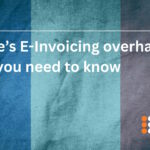
E-Invoicing Exchange Summit Vienna – September 22-24, 2025
The 2025 Vienna Exchange Summit will explore the latest hot topics in e-invoicing, such as CTC, tax compliance, and global interoperability.

The 2025 Vienna Exchange Summit will explore the latest hot topics in e-invoicing, such as CTC, tax compliance, and global interoperability.

The Netherlands has published its next steps toward ViDA compliance, launching consultations on a potential B2B e-invoicing mandate.

Increasing adoption, public interest and growing membership drew many active contributors as well as newly engaging experts-to-be into this biggest ever gathering of the Peppol Network community.

Belgium’s B2B e-invoicing mandate is coming. Join July 9 Indicom webinar to get ready and turn compliance into opportunity!

Poland moves forward with e-invoicing mandate as the Ministry of Finance releases key technical documentation to help companies prepare.

Voluntary e-Reporting via InvoiceNow is effective from May 2025, using either the Peppol BIS 3.0 or the PINT-SG format.

France mandates e-invoicing by 2027. Learn how to stay compliant and turn regulation into opportunity in Indicom’s June 26 webinar.

Join eezi for a webinar on June 26: transforming Germany’s B2B invoicing, phased rollout & future-ready compliance

The Invoicing Hub now covers a 21st country: Mexico, with regular e-invoicing news & detailed country profile.

The European Commission presents Single Market Strategy with strong focus on digital simplification and e-invoicing
The Invoicing Hub
experts can help you
Strategy, Guidance, Training, …